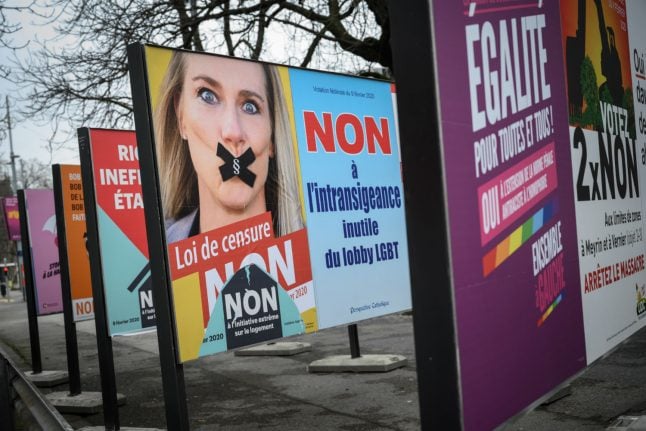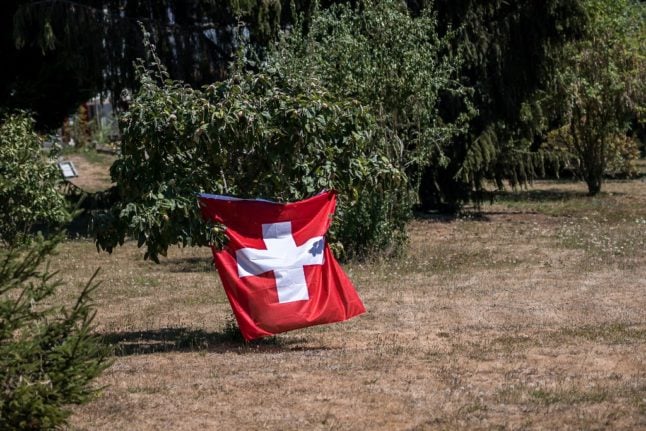“And maybe I would not have been laughed at when I went to the police,” said the 71-year-old, who believes the law will be “an added safeguard against homophobia”.
The new law would widen existing legislation against discrimination or incitement to hatred on ethnic or religious grounds to include sexual orientation.
The change was passed by the Swiss parliament in 2018. But the populist rightwing Swiss People's Party (SVP) and the Federal Democratic Union of Switzerland (EDU), a small party based on Christian values, are opposed.
Critics of the law, who have forced a public referendum on the issue, believe it will end up censoring free speech.
Eric Bertinat, a UDC local lawmaker in Geneva, told AFP that he believed the law was “part of an LGBT plan to slowly move towards same-sex marriage and medically assisted reproduction” for gay couples.
UDF chief Marc Frueh has called it a “censorship law”. But Sigrist, founder of Switzerland's association of gay teachers, said it would counter growing intolerance.
The retired teacher said he supports freedom of expression, “but not the freedom to say anything at all”.
All of Switzerland's major parties except the UDC, the biggest political force in parliament, support the law.
No to 'special treatment'
Under the new law, homophobic comments made in a family setting or among friends would not be criminalised.
But publicly denigrating or discriminating against someone for being gay or inciting hatred against that person in text, speech, images or gestures, would be banned.
The government has said it will still be possible to have opinionated debates on issues such as same-sex marriage, and the new law does not ban jokes — however off-colour.
“Incitement to hatred needs to reach a certain level of intensity in order to be considered criminal in Switzerland,” Alexandre Curchod, a media lawyer, told AFP.
But he admitted that there could be exceptions “if it can be shown that, under the cover of artistic production or joking, someone is in fact engaging in incitement”.
Gay rights campaigners are divided over the legislation. A group called “No to Special Rights!” is opposed, arguing that the gay community does not need special protection.
“I fight for the acceptance and normalisation of my sexuality. But for me that also means not asking for special treatment,” said Michael Frauchiger, co-head of the group.
Opinion polls show that the Swiss as a whole are broadly in favour of the law, but that the margin between supporters and opponents has narrowed in recent months.



 Please whitelist us to continue reading.
Please whitelist us to continue reading.
Member comments